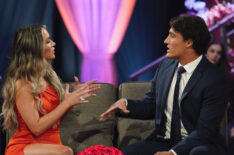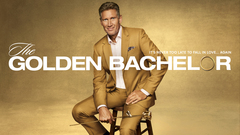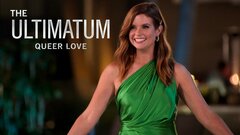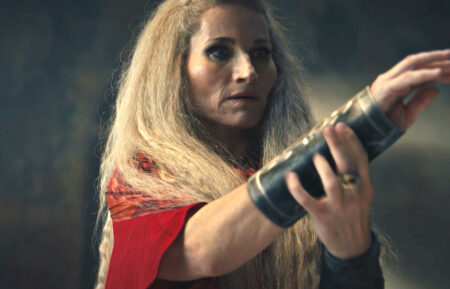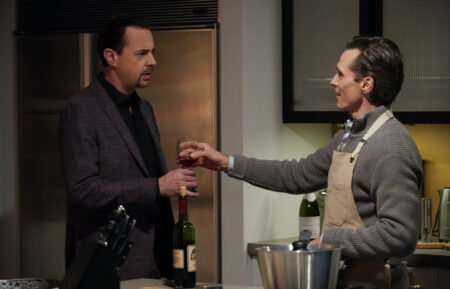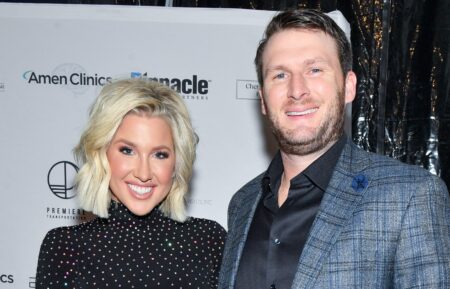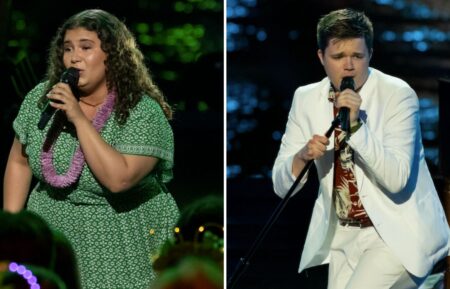Queer Relationships Make for the Best Reality Dating Shows
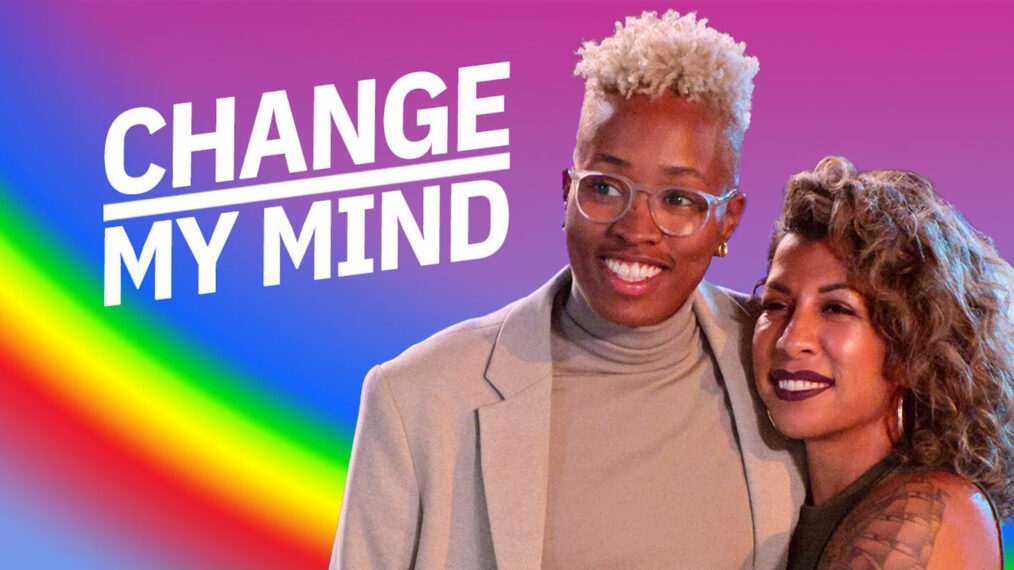
Queer reality dating shows, unfortunately, have been few and far between. The genre has existed since the first reality dating show, The Dating Game, debuted in December 1965. ABC had a monopoly on the format for a long time with The Bachelor and The Bachelorette, and the genre has continued to grow at a relentless pace as networks and streaming services jump on the dating show bandwagon (Netflix alone has enough dating shows to air year-round). But the majority of these series only center the dating lives of straight, cisgender people. Why? The queer dating shows are so much better.
I don’t say this just because I’m queer. I’ve had to watch reality dating shows for work for years, much to my chagrin most of the time. The genre is just not my thing (nor is reality TV in general), but I’ve been known to enjoy some of these formats. (Even I can’t deny how intriguing the premise of Love Is Blind was when it first came out in 2020.) I’ve watched more than enough of these shows to know what makes them tick — and why they tick viewers off.
One thing that’s overwhelmingly clear to me is that many of the contestants on these shows are not emotionally equipped to navigate the extremely complicated dating waters they choose to dive into. I’d chalk it up to age, since so many reality dating stars are younger than 25, but there are plenty of 30-somethings in these casts nowadays whom I can’t believe are as unevolved as they are.
Emotional intelligence is what so many of the straight dating shows are missing. Life will force you to hone that skill eventually, but some people avoid that difficult work for far too long because it’s scary to confront the things you need to heal. The Bachelor franchise used to be much more mature than it is now. Since around 2013, the show has seemed to pivot to relying on the lack of emotional intelligence of its cast members. More emotional turmoil means more drama. And more drama surely means more viewers, right? Wrong. The Golden Bachelor is free of people with zero communication skills, and it’s thriving. Dramatic intrigue coming from pure and simple romance, not 20-somethings having emotional meltdowns on-screen? Imagine that!
Queer people are also a highly emotionally intelligent group. There are exceptions, just like there are emotionally intelligent stars of straight reality dating shows amongst their chaotic co-stars, but the process of self-discovery for queer people often starts earlier than it does for their straight, cisgender peers. Not every queer person knows they’re queer when they’re young (I didn’t, but oh boy, were there hints). But whenever this journey of self-discovery begins, it brings about a time period of asking yourself challenging questions.
Whether they’re monogamous, polyamorous, or ethically non-monogamous in dating style, queer people of all gender identities have more opportunities to strengthen their emotional intelligence by nature of living the queer experience. The introspection required to understand your sexual and/or gender identities, whenever that process happens in your life, makes you grow up. That maturity leaves you understanding yourself more fully. That self-awareness, paired with healthy communication skills, makes an emotionally intelligent person. This is not to say that every queer person is a good communicator (I laugh at that thought). But when you’ve spent so much time unpacking every corner of your identity, learning how to effectively communicate your wants and desires more often than not becomes a natural next step.
That’s what was so refreshing about The Ultimatum: Queer Love. While this cast seemed to be primarily monogamous in dating styles, most of them were not distraught seeing their partners date other people (The Ultimatum: Marry or Move On can’t say the same). Mal Wright, for example, was able to hold space for her (now ex-)partner Yoly Rojas‘ feelings of love for Xander Boger. Mal not only accepted Yoly and Xander’s bond and didn’t see it as a betrayal, but also didn’t guilt Yoly for falling in love with someone else. And as Mal told TV Insider after the reunion aired, she is monogamous. That display of love and respect and real communication was a radical thing for reality TV. I’ve never seen anything like it in the genre, have you?
Additionally, Mal and Xander could have leaned into their stress and fought over Yoly. Jealousy has caused similar fights on other dating shows. But they kept things respectful between each other to an admirable degree. Aren’t you sick of seeing people disrespect their partners on these dating shows? Isn’t it so nice to see some mindful respect? This doesn’t have to be exclusive to queer dating shows, but I certainly didn’t see much of it in Love Is Blind Season 5. One guy wouldn’t even talk to his fiancée on their honeymoon because of the makeup she wore to their engagement. What the f**k?
On the other side of things in Queer Love, there was Aussie Chau and Sam Mark. Aussie completely broke down and lashed out when Sam set reasonable boundaries and expected Aussie to respectfully communicate. There was tension, but Sam wasn’t being unfair. Aussie then misused healthy communication language by telling Sam they felt unsafe because of the reasonable boundaries she set. There was also Mildred Bustillo, who was emotionally abusive to Tiff Der throughout the season and was even arrested for assaulting Tiff after filming wrapped. As Tiff told TV Insider after the reunion debuted, the producers were informed of the arrest and still allowed Mildred to participate. This is the kind of turmoil we’re now used to seeing on reality dating shows, and it’s bad that we’re used to it.
From where I stand, most reality dating shows rely on emotional turmoil for ratings. It’s irresponsible and unethical and needs to change. The genre needs an overhaul, and the emotionally intelligent stars of The Ultimatum: Queer Love and The Golden Bachelor should be the new blueprint.
What sets Queer Love apart from The Golden Bachelor is how normalized ethical non-monogamy is in queer culture. I’m sure there are seniors who understand and practice polyamory and open relationships themselves, but I’m confident in saying it’s more commonplace among younger generations.
Ethical non-monogamy is so normalized in queer culture that even if you’re monogamous, you’re likely able to wrap your head around people being in multiple relationships at once and understand that it’s not cheating. The wildest part about reality dating shows is most of these formats force people to practice non-monogamy, but the contestants are seemingly all monogamous. The Ultimatum‘s format literally makes people watch their exes date other people. They’re technically broken up, but based on my interviews with these cast members, none of them actually feel like their original relationships were over.
It’s unfair to throw people who don’t understand or don’t align with non-monogamy into a situation where they’re forced to contend with just that without professional help (I’m begging these shows to provide therapists on set — sending in the hosts or a bartender doesn’t count). Not every single person will struggle with it (and not every queer person will be comfortable with non-monogamous dating experiments), but we’ve seen more than our fill of watching people struggle with these relationship tests.
It makes no sense that reality dating shows are built on polyamorous relationships but cast no polyamorous people. Also, it’s 2023. Why aren’t queer people just be included in these casts from the get-go? Can’t there be lesbians, gays, bisexuals, pansexuals, the works in the Love Is Blind pods and more living quarters set up to protect the anonymity of the experiment? I would pay money to see a queer star of The Golden Bachelor (or perhaps Bachelorette). Elder queers finding love? Are you kidding? To whom do I write the check?!
Reality dating shows are so tired, they rely on people with little to no healthy communication skills to create dramatic intrigue. When networks and streamers break from the usual form to bring variety with shows like The Ultimatum: Queer Love and The Golden Bachelor, the shows prove that not only is changing things up a recipe for increasing viewership, but also (and primarily) that emotional intelligence makes for better TV.
Emotionally intelligent queer people are the solution to the stagnate, irresponsible state of reality dating TV. Change my mind.

